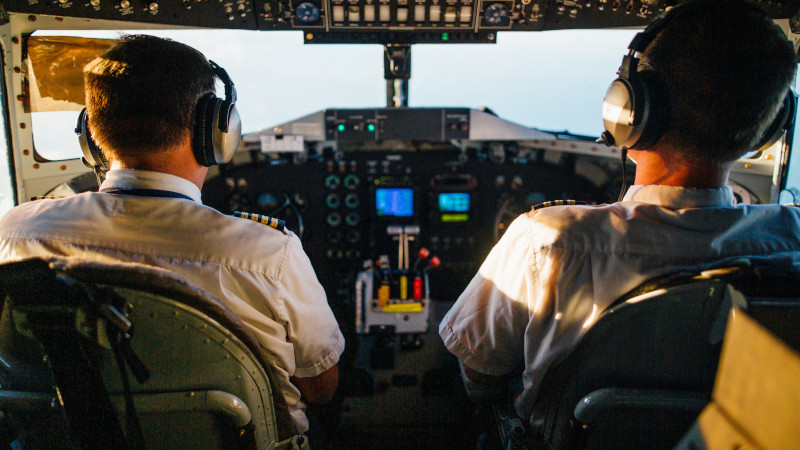Where have all the pilots gone?
October 20, 2023 by Eric Bradley
It may seem odd that airlines are complaining about a
pilot shortage. After all, you can see planes in the sky
every day, and you sure as heck can hear them passing
over your house!
What you may not know is the aviation industry is
massive — much more than just airlines — and
it's currently experiencing rapid expansion. This is
happening at the same time many pilots are retiring
faster than they can be replaced.

Causes of the pilot shortage
The aviation industry was caught totally unprepared by
Covid-19. Although in hindsight it seems like exactly
the kind of situation where airlines should have made
emergency preparations, at the time the airlines were
riding high, and were also dealing with another crisis
— the scandal and financial chaos resulting from
the Boeing 737-Max fiasco which resulted in the aircraft
being grounded worldwide from March 2019 to November
2020. This was a major concern for airlines that had
invested heavily into the 737-Max.
With this distraction ongoing, and many airlines reeling
from the financial impact, Covid-19 was able to sneak up
on the industry. This time, the damage would be worse
than anyone imagined possible.
More than 60 million people around the world lost their
jobs in aviation as a result of the pandemic. The
resulting financial pressure for the former employees
created a situation where many had no choice but to
leave the industry. Workers in many other industries had
options to work remotely or to work on an adjusted
schedule.
Aviation workers can't work remotely because their jobs
require physical presence at the work place. When it
became evident the pandemic was potentially going to
linger for years, airlines didn't react well to the
news.
Now here we are four years later, and air travel has
opened up again. Contrary to expectations, demand is not
only strong, it is actually stronger now than it was
before the pandemic.
However now there is a new problem threatening to put
a dent in revenue. The older and more experienced pilots
who stayed with the industry are getting closer to
retirement age. Many of their former colleagues have
already moved on to greener pastures. Normally there
would be plenty of people eager to replace them.
But now there are less people entering the industry than
there are leaving it. This is happening because the
current generation of graduating students are less
likely to pursue an aviation career than earlier
generations.
Consequences of the shortage
This has happened because the pathway to becoming an
airline pilot is a long and expensive one. In countries
with lower flight experience requirements than the US,
it has proved to be less of a problem. But the FAA has
steadfastly resisted calls from US airlines to reduce
the 1500 hour flight experience requirement for the
ATPL qualification, citing that public safety was more
important than economic factors.
Airlines have responded to the crisis by relaxing their
formerly restrictive hiring policies, allowing pilots to
be able to start an airline career sooner and with less
expense. But the major barrier imposed by the FAA
experience requirement is a problem. With only 20% of
flight school entrants continuing all the way to
graduation with a CPL, and only 20% of those graduates
actively working toward their ATPL, the pool of
candidates is very small.
This has forced even further changes onto the industry
and the government of the United States. The previously
protected aviation industry, which has been very averse
to hiring workers from outside the US now has had no
choice but to open up.
Similarly, the USCIS has had to relax restrictions on
visas in order to allow more foreign experts to seek
employment in the United States, due to shortages.
As foreign pilots and other qualified experts leave
their home countries in pursuit of better pay in the US,
it has created a domino effect where the other countries
are facing their own pilot shortages.
Meanwhile the demand for air travel is expected to
double over the next five years. What this means for
those who are contemplating getting into an aviation
career is that there has never been a better time to
enter the industry, and the world is wide open.